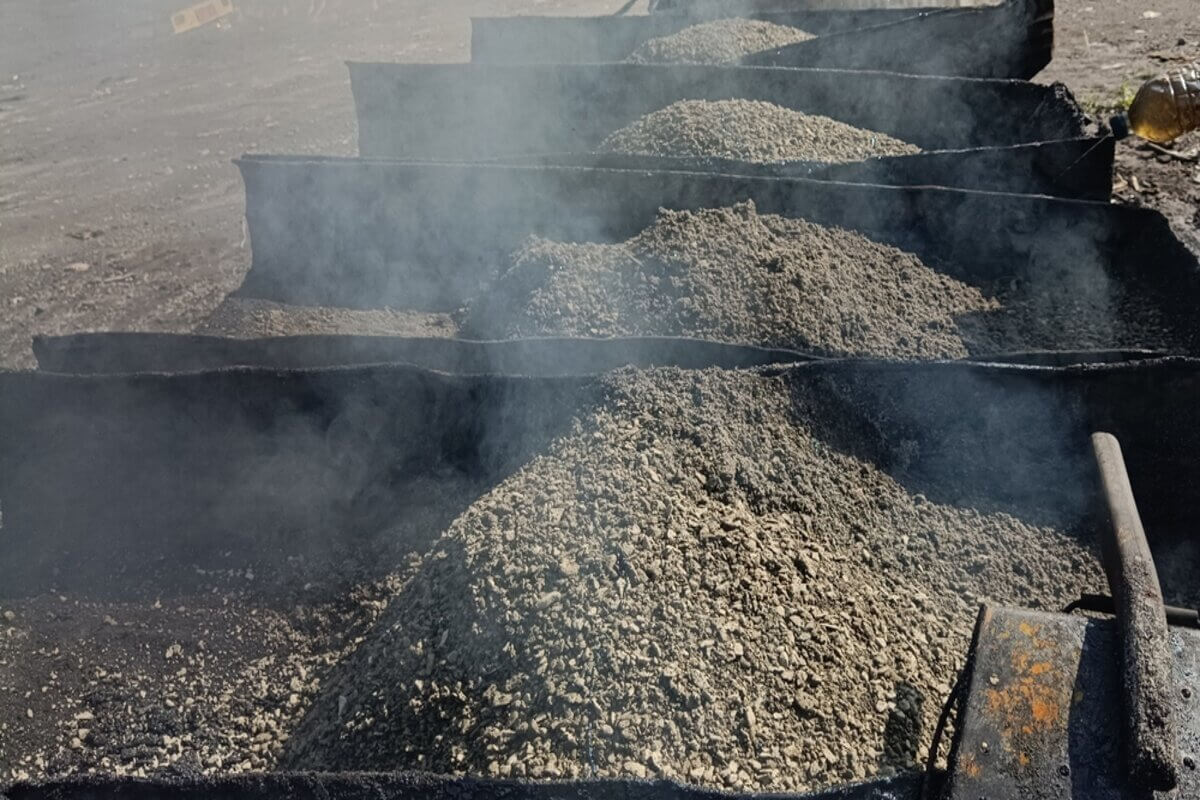Hot Mix Asphalt: Redefining Road Construction Criteria
Hot Mix Asphalt (HMA) is considerably modifying the landscape of roadway building and construction methods, establishing brand-new performance criteria and improving market requirements. The effects of HMA in redefining road construction requirements are profound, providing a compelling case for a more detailed examination of its transformative capabilities in modern-day engineering practices.
Benefits of Hot Mix Asphalt
The efficiency of using Hot Mix Asphalt in roadway building and construction projects is unequaled because of its resilience and cost-effectiveness. Hot Mix Asphalt (HMA) uses various advantages that make it the preferred option for leading roads. Among the key benefits of HMA is its capability to hold up against heavy traffic loads and extreme weather, guaranteeing resilient efficiency. This durability reduces the requirement for constant repairs and maintenance, leading to expense financial savings for task proprietors and taxpayers.
In addition, the smooth surface area finish of HMA minimizes rolling resistance, improving fuel efficiency for automobiles and reducing general transport prices. The fast building and construction time connected with HMA tasks better enhances its cost-effectiveness by lowering labor and web traffic disruption expenditures - Hot Mix Asphalt. The recyclability of HMA materials makes it an environmentally lasting choice for roadway building and construction projects.
Longevity and Toughness of HMA
With a tried and tested track document of withstanding hefty website traffic tons and severe climate conditions, Warm Mix Asphalt (HMA) stands out for its outstanding longevity and longevity in road construction jobs. By giving a secure and smooth riding surface for chauffeurs, HMA lowers wear and tear on vehicles and enhances total roadway safety.

Environmental Benefits of HMA
Progressively, road building and construction projects are turning to Hot Mix Asphalt (HMA) for its substantial environmental benefits. HMA is a sustainable paving material that provides numerous benefits in terms of environmental impact. One of the essential advantages of HMA is its recyclability. The product can be reused and reused multiple times, reducing the requirement for virgin products and decreasing the amount of waste sent out to land fills. This reusing procedure additionally helps conserve natural resources and lowers energy intake linked with producing new asphalt.
Furthermore, HMA sidewalks are known for their ability to mitigate stormwater runoff. The smooth surface of HMA roads permits rainwater to move efficiently right into the ground, minimizing erosion and reducing the threat of flooding. This can have a favorable effect on the bordering ecological communities by maintaining natural water flow patterns and preserving the top quality of water bodies.
HMA in Roadway Construction Projects

Roadway building projects profit from HMA's quick building and construction time, permitting faster completion of roadways and decreasing web traffic disruptions. The material's simplicity of maintenance also adds to cost financial savings over the lifespan of the roadway. The smooth surface given by HMA decreases gas consumption and car exhausts, contributing to a much more lasting transportation framework. In general, including HMA into roadway construction jobs results in resilient, cost-effective, and eco-friendly streets that fulfill the demands of contemporary transportation systems.
Impact of HMA on Framework
The extensive usage of Warm Mix Asphalt (HMA) in road building projects dramatically affects the total infrastructure high quality and long life. Hot Mix Asphalt. HMA gives special info a smooth and resilient driving surface that boosts road safety and security by reducing and lowering accidents automobile More Info wear and tear.
HMA is a recyclable material, which implies that old asphalt can be reused in brand-new roadway building and construction, decreasing the need for virgin materials and lessening waste. In verdict, the impact of HMA on facilities is extensive, advertising much safer roadways, cost-effectiveness, and ecological duty in roadway building and construction tasks.
Verdict
In conclusion, Warm Mix Asphalt (HMA) has actually verified to be a game-changer in roadway building and construction criteria due to its unequaled effectiveness, longevity, and cost-effectiveness. With its ability to hold up against hefty web traffic lots and extreme weather problems, HMA provides a durable and trustworthy service for framework jobs.
With a tried and tested track record of holding up against heavy website traffic loads and extreme weather conditions, Warm Mix Asphalt (HMA) stands out for its extraordinary long life and sturdiness in roadway construction jobs.Making Use Of Hot Mix Asphalt (HMA) in road building and construction projects provides countless advantages in terms of sturdiness and sustainability.Roadway construction projects profit from HMA's fast building and construction time, allowing for faster completion of roadways Bonuses and decreasing traffic interruptions.The considerable use of Hot Mix Asphalt (HMA) in road building tasks significantly influences the general facilities top quality and long life. In conclusion, the impact of HMA on facilities is profound, advertising much safer roadways, cost-effectiveness, and ecological duty in roadway building and construction projects.